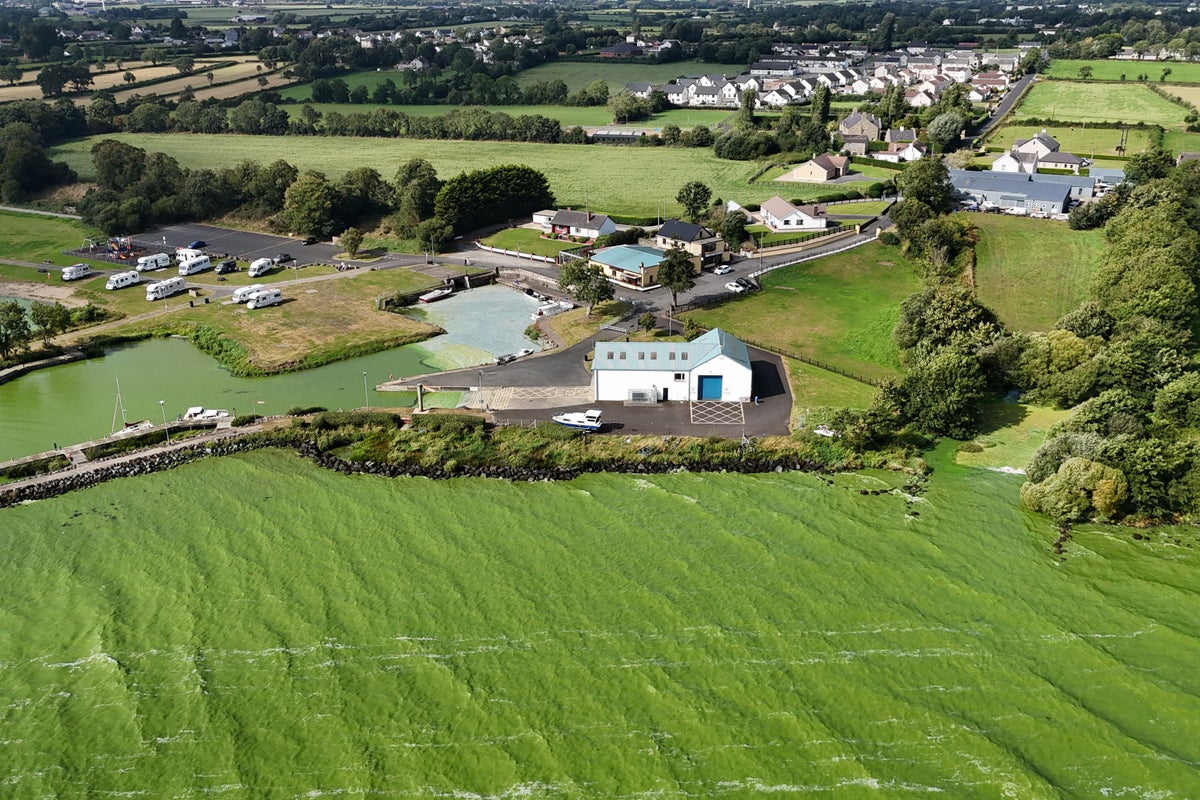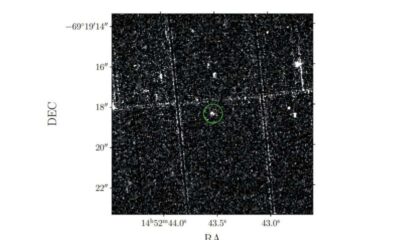Science
Experts Launch £800,000 Initiative to Combat Algal Blooms in Lough Neagh

Experts are set to enhance water quality in Lough Neagh through a cutting-edge space technology monitoring system aimed at addressing the persistent issue of noxious algae. The return of blue-green algae to the lough for the third consecutive summer has raised significant concerns, with many describing the current situation as the most severe they have encountered.
The UK Space Agency has allocated £800,000 as part of its “Unlocking Space for Government” programme to establish an operational remote sensing solution. This initiative will focus on predicting, detecting, and monitoring blue-green algae in the lough. The funding announcement coincides with phase two of a Small Business Research Initiative (SBRI) programme, which is set to continue until April 2026.
Government and Industry Collaboration
Addressing this pressing environmental challenge, Andrew Muir, Minister for Agriculture, Environment and Rural Affairs, emphasized the importance of using space technology to monitor algae. He stated, “This investment moves us from research to real-world solutions, giving our teams earlier, more accurate information and improving our monitoring capability. It shows how innovation and collaboration can deliver practical tools for environmental protection.”
The Department of Agriculture, Environment and Rural Affairs (Daera) has been employing a combination of satellite intelligence, on-ground measurements, and public health guidance in response to the environmental impact of the algae. Chris McQuire, senior lead for the UK Space Agency’s programme, remarked, “Through our unlocking space for government programme, we’re backing cutting-edge solutions that harness satellite technology to protect important natural resources.”
McQuire also highlighted the dual benefit of the initiative: it supports local communities while reinforcing the UK’s commitment to space innovation. He expressed enthusiasm for the collaboration with Plastic-I and Newcastle University to transform research concepts into practical tools that can significantly impact Lough Neagh.
Innovative Monitoring Solutions
The partnership between Newcastle University and Plastic-I will focus on developing a comprehensive monitoring system designed to improve water quality in Lough Neagh. James Doherty from Plastic-I explained, “Bloomcast NI turns world-class science into a practical tool that helps protect communities, ecosystems, and livelihoods around Lough Neagh.” The system will integrate satellite imagery, drone surveys, and environmental data to provide AI-enabled forecasts of algal blooms.
These forecasts are intended to empower government agencies and local stakeholders with timely information, enabling them to respond more effectively to emerging environmental challenges. Maria-Valasia Peppa from Newcastle University added that the project would involve the development of a satellite, drone, and in-situ sensor-based monitoring system specifically for the lough. She noted, “With the recent growing concern around environmental impact, this investment is timely to provide technological solutions to support societal and environmental resilience.”
The initiative represents a significant step in leveraging space-based technologies to tackle pressing environmental issues and underscores the potential for collaboration between government agencies and academic institutions in Northern Ireland.
-

 Entertainment2 weeks ago
Entertainment2 weeks agoAnn Ming Reflects on ITV’s ‘I Fought the Law’ Drama
-

 Entertainment2 months ago
Entertainment2 months agoKate Garraway Sells £2 Million Home Amid Financial Struggles
-

 Entertainment2 months ago
Entertainment2 months agoKim Cattrall Posts Cryptic Message After HBO’s Sequel Cancellation
-

 Entertainment2 weeks ago
Entertainment2 weeks agoWhere is Tinder Swindler Simon Leviev? Latest Updates Revealed
-

 Entertainment4 weeks ago
Entertainment4 weeks agoMasterChef Faces Turmoil as Tom Kerridge Withdraws from Hosting Role
-

 Entertainment2 weeks ago
Entertainment2 weeks agoITV’s I Fought the Law: Unraveling the True Story Behind the Drama
-

 Entertainment1 month ago
Entertainment1 month agoAldi Launches Cozy Autumn Fragrance Range Ahead of Halloween
-

 Entertainment2 months ago
Entertainment2 months agoSpeculation Surrounds Home and Away as Cast Departures Mount
-

 Entertainment2 months ago
Entertainment2 months agoMarkiplier Addresses AI Controversy During Livestream Response
-

 Lifestyle4 weeks ago
Lifestyle4 weeks agoSummer Flags Spark Controversy Across England as Patriotism Divides
-

 Science2 months ago
Science2 months agoAstronomers Unveil New Long-Period Radio Transient ASKAP J1448−6856
-

 Health2 months ago
Health2 months agoWigan and Leigh Hospice Launches Major Charity Superstore





















